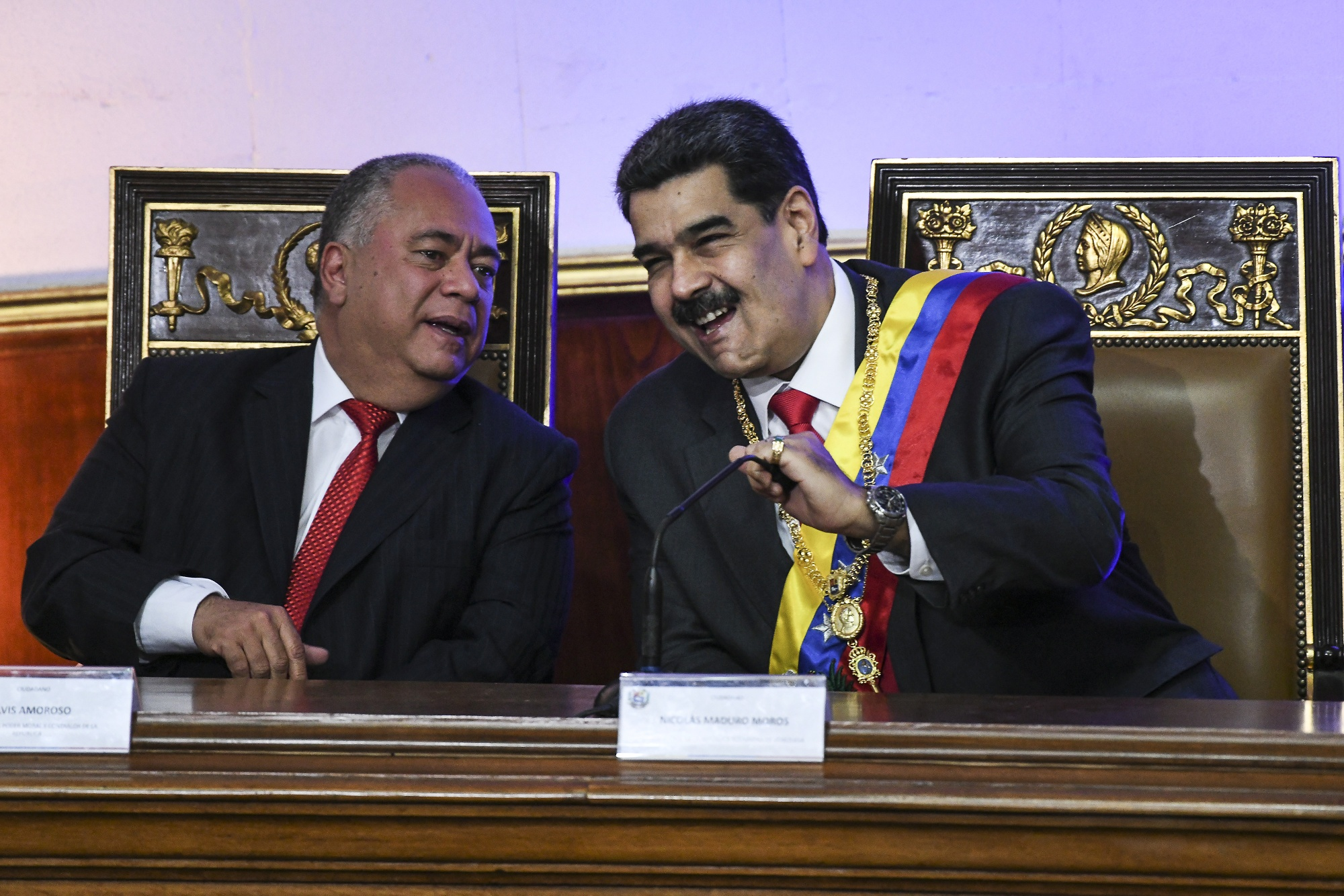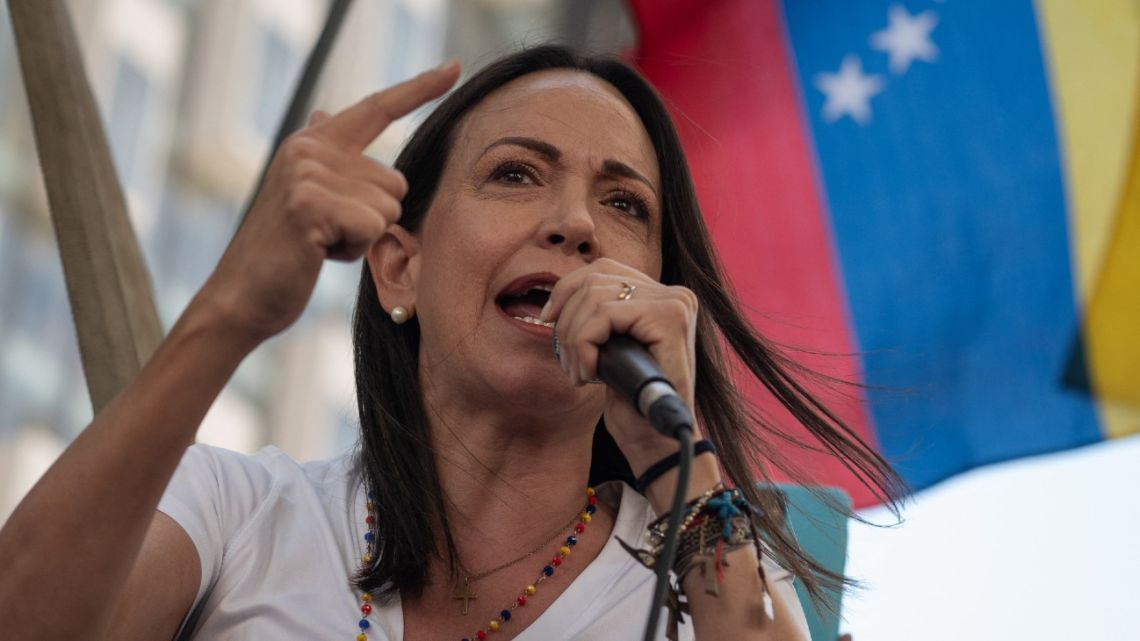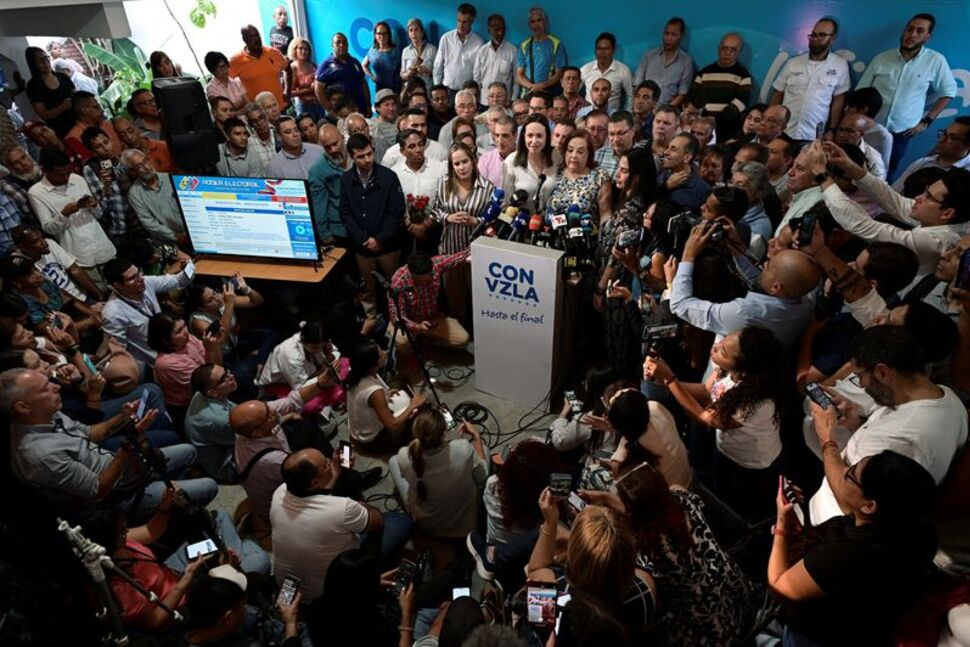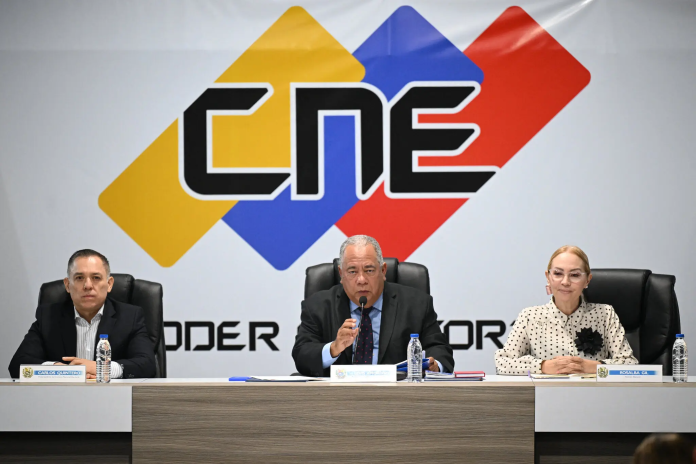Venezuela’s National Electoral Council (CNE) rescinded the European Union’s invitation to oversee the nation’s upcoming presidential elections on Wednesday, in a move critics say puts the election’s legitimacy at risk.
Another Controversy
Officials stated that the move was due to the EU’s continued sanctions against Venezuela, sanctions which affect 50 Venezuelans who have been accused of acts of repression or efforts to undermine democracy. Despite this claim, the EU had previously lifted sanctions against Venezuelan entities with ties to the CNE, leading one official, Elvis Amoroso, to claim that it was not enough to appease authorities and was selective in nature.
“They [the EU] are not worthy people to come to this country…while they maintain sanctions,” Amoroso stated on national television.

The move has resulted in the EU requesting the CNE to reevaluate its decision, stating in a post on X that international observation is essential to safeguard the upcoming election.
“The Venezuelan people should be able to choose their next president in credible, transparent and competitive elections, supported by international observation, including that of the European Union, which has a long and distinguished record of independent and impartial observation,” the statement read.
Continued Pressure on the Opposition
This moves comes amid a number of attempts by Venezuelan authorities to limit the nation’s leading opposition coalition known as the Unity Platform. The coalition’s leading candidate, Maria Machado, was previously barred from running for the presidential office after officials upheld a 15 year-long ban on the candidate following Machado’s criticisms of the Maduro government, the support of US sanctions on Venezuela, and her supposed role in a corruption scandal. Machado was a leading candidate in the Venezuelan primaries prior to her disqualification from running for president.
Politicians found guilty of corruption are barred from holding public office for 15 years in Venezuela. However, the opposition has claimed the government has abused this power to control who can and cannot run for the presidency following the barring of three opposition candidates, including Machado.

Following the ban on Machado being upheld by the Venezuelan Supreme Court, the United States government announced a rollback on a portion of their sanctions relief in late January. They reimposed sanctions on Venezuela’s gold mining industry, which led to fierce condemnation from the Venezuelan government.
The Barbados agreement was signed between the Venezuelan government and the country’s political opposition in order to promote political rights and electoral guarantees for those wishing to run for office. The agreement outlines several key points, including recognizing the right of political actors to choose their candidates freely and promoting electoral guarantees before the National Electoral Council.
The agreement would also facilitate the release of 10 American prisoners, six of whom are believed to be falsely imprisoned, held in Venezuela in exchange for Alexander Saab, a Colombian businessman and Maduro’s close ally who was imprisoned in the U.S. on money laundering charges.
Following Machado’s ban, the Unity Platform chose to replace the frontrunner with Corina Yoris, a political unknown and university professor, who in turn was prevented from registering for her candidacy due to what the coalition claimed was the fault of the government.

Following Yoris’ failure to register, the Unitary Platform chose to endorse former diplomat Edmundo González Urrutia with the hope of registering another candidate at a later date. This hope would eventually dissolve after the alliance fully endorsed González as their candidate. González, who previously served as the country’s diplomat to Algeria and Argentina, maintains that Machado remains the “the leader of the opposition” and “the leader of this unitary process,” leaving the disqualified politician to campaign in his place.
The election is slated to begin on July 28th, with analysts theorizing that an opposition win may pull Venezuela from the nation’s ongoing economic slump and offer a brighter future for the democratic process in the country.

